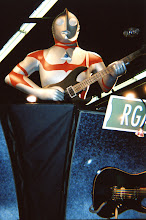
From the February issue of Interview Magazine interview feature with Jay-Z by Elvis Mitchell
ELVIS MITCHELL: Would you have ever thought there would be a time where you could have a song like “Empire State of Mind” blow up the way it has, and, yet, there aren’t any record stores around any more? Isn’t it strange that we got to this point?
JAY-Z: It’s horrible. I mean, you didn’t foresee this specifically, but you knew something would happen because whenever people reject change, things change for them anyhow. I think that’s what happened to the record business when Napster came around. The industry rejected what was happening instead of accepting it as change. Here we are today, more than a decade later, and we still haven’t figured it out.
MITCHELL: Well, it still speaks to the power of music that something like “Empire State of Mind” can pop like that. There’s still an appetite for it.
JAY-Z: Well, I don’t think the appetite is the problem. I think the consumption of music is at an all-time high. But I think the ways that record companies are trying to monetize it is just all over the place. At the end of the day, music is in the clouds. That’s where it’s at now. Before, you could hold it, look at it, turn it around. Now, it’s just in the air. That’s where it’s gonna wind up. You won’t need a shelf or a wall unit like my mom and pop had with all these big-ass records. You’ll just need your phone to call it up.
MITCHELL: I’m sorry, I’ve gotta stop you here. You must hear this all the time, but whenever you say something that’s a phrase from one of your songs . . . When you said “all-time high,” I just went right to “Numb/Encore.” Does that kind of thing happen often?
JAY-Z: All the time. It’s good. . . . It’s weird and good.
MITCHELL: I think it has to do with how you fold certain phrases into your lyrics in the way that people talk.
JAY-Z: I think it comes from me trying to tell the story in the most clear, concise, and truthful way—taking those everyday words and phrases and capturing them in a way that they become something else.
The people who write the headlines at places like the New York Post do something similar. They turn these phrases that you know into hooks. Sometimes they’re clever. Sometimes they’re stupid, like TIGER’S TALE. [laughs] Actually, that was pretty clever. Rakim said, “I can take a phrase that’s rarely heard/Flip it/Now it’s a daily word” [from “Follow the Leader,” off Eric B. & Rakim’s 1988 album Follow the Leader]. That’s what I’m talking about.
MITCHELL: You’ve always had a really good ear for things like that in your music, but one of your real gifts is that you can hear those sorts of things in other people’s music, too—like The Notorious B.I.G. or the Neptunes or Kanye West. That’s part of what makes you a great collaborator.
JAY-Z: I just really love the music. Everyone who makes music is a good collaborator at their foundation because in order to make music, you have to connect to it in a way that other people can’t. Other things can get in the way, whether it’s the boxes that people put themselves in, or the feelings they might have towards a person. But those things don’t get in the way for me. To me, there shouldn’t be any lines. All these ways we classify things as R&B and hip-hop and rock . . . It’s bullshit. It’s all music. If you put yourself in that box, then you won’t be able to hear that it’s all music at its soul. When people say stuff like, “Oh, that’s soft rock. I don’t listen to that,” I find that elitist. It’s music-racist. [laughs]
Read the excerpts of the full interview and see Interview Jay-Z feature photos here:
Interview Magazine - Jay-Z


No comments:
Post a Comment